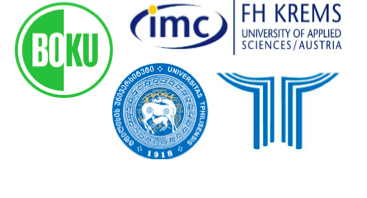Case study teaching
Case study teaching is an important instrument for the promotion of interdisciplinarity within academic curricula, often challenging to both students and teachers, who may not have experience working outside of their disciplinary field.
It is also possible to extend the case study concept towards transdisciplinarity. In this case, the tasks become even more complex and challenging, because this means not only informal participation of case actors (stakeholders) but rather systematic involvement and, moreover, also collective reasoning as well as joint problem solving (Mieg, 2000[1]).
Case actors/stakeholders (for example, residents of a rural community facing development challenges, as planned in CaucaSusT), students and teachers work together as a team, each participant contributing with a specific form of experience and expertise and therefore engaged with a specific role in the whole case study process. Within the project process there are different phases where transdisciplinarity can be shaped and further developed.
A key factor for successful integration of non-academic case actors into academic case study teaching is the initiation of transdisciplinarity in the early phases of such a project. (adapted from Muhar et al 2006[1])
Information about implementation of the Case Study Courses in Armenia and Georgia can be found here

